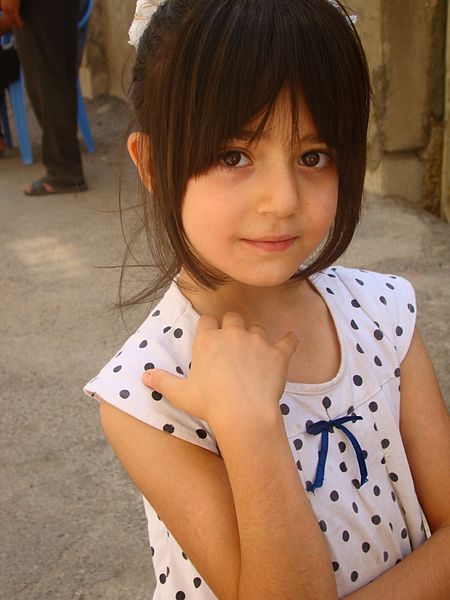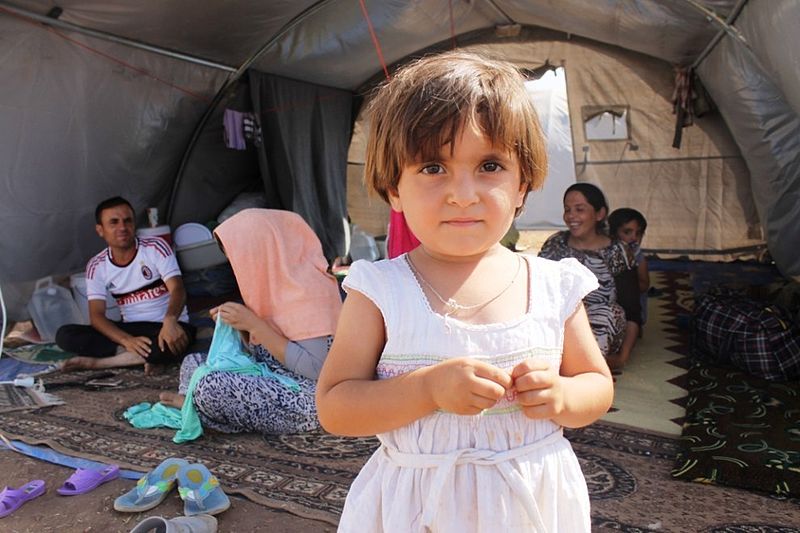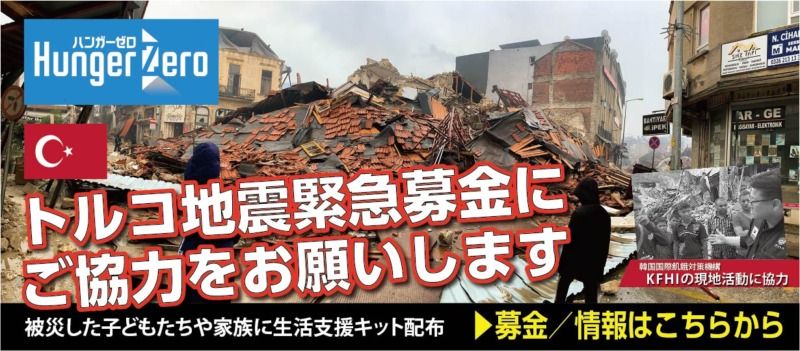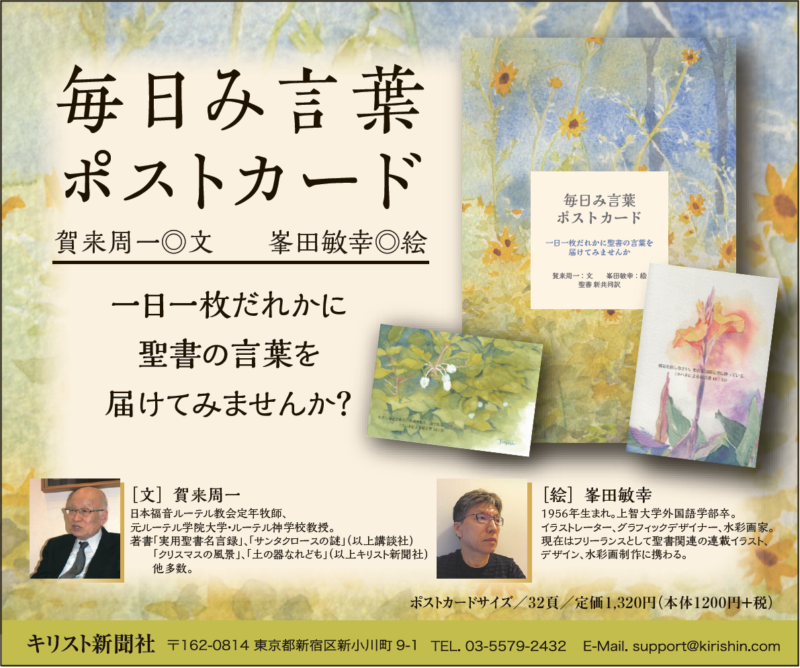(前編を読む)
救援活動の実施と資金調達への困難
Struggles to Provide and Fund Relief Efforts
シリアで活動しているキリスト教団体「プリエンプティブ・ラブ(先行する愛)」は、避難民の帰還支援に注力してきた。2019年の前半、同団体は45軒の家を再建し、61の事業を立ち上げ、500人の農業雇用を創出している。
Preemptive Love had been focused on helping the displaced return. In the first half of 2019 they rebuilt 45 homes, helped launch 61 businesses, and created 500 farming jobs.
トルコの侵攻に対応するため、二つの移動式医療施設も稼働させている。しかしコートニーが言うには、「先日は、(同施設の)地域担当が電話で近況報告をしている最中、近隣の通りで遺体回収作業をしなければならなくなり、電話が中断されました」
In response to the Turkish incursion, they opened two mobile clinics. But Courtney said a recent phone call providing updates was interrupted when the local partner had to pull bodies from the street.
「この危機は落ち着く兆しを見せておらず、緊張は続いています。北シリアのクルド人は、裏切られ見捨てられたと感じています。私たちは自分を守るために彼らを見放すことなどできません」
“This crisis shows no sign of letting up, and we can’t either,” he said. “The Kurds of northern Syria already feel betrayed and abandoned. We cannot leave them to fend for themselves.”

クルド人の子ども(写真:Jihadmahde)
同団体の広報担当シニア・ディレクター、エリン・テイラーも語る。「セーブ・ザ・チルドレンも拠点に残って、難民キャンプで子どもたちが安全に遊べる場所を確保しています」。同団体の基本的なサービスは継続できているが、それをどのタイミングでどう拡大するかは、状況を見据えて待つ必要がある。
Save the Children is also remaining, securing safe places to play in refugee camps, said Erin Taylor, senior director of communications. Basic services are provided, but they must wait until they can determine how and when to safely scale up delivery.
しかし、それも政府間の取引によって変更を迫られるかもしれない。
But following the deal, plans may change.
「セーブ・ザ・チルドレン」のシリア担当ディレクター、ソニア・クッシュは言う。「政府の取引によって、シリア北東部のどこにアクセスできるかが大きく影響されます。戦線が変われば、ここを立ち去る必要も出てくるでしょう」
“There will be a huge impact on where we’re able to access in the northeast,” said Sonia Khush, the Syria response director at Save the Children. “We have to leave as the battle lines change.”
地元の教会もまた苦難を強いられている。
Even local churches are having difficulty.
「シリアとレバノンの教会会議」の理事会メンバーで、シリア北部の都市アレッポの長老教会牧師イブラヒム・ンシールによると、3つの姉妹教会に援助の必要があるが、資金が足りないという。
Ibrahim Nseir, pastor of the Presbyterian Church of Aleppo and a board member of the Synod of Syria and Lebanon, said their three sister churches in the area are well-qualified to help, but have no funding.
「教会は、貧しい人々や疎外された人々を助ける神の御手です。教会は救援活動の中でも最も大きな働きを担ってきました」
“The churches are the means of God to take care of the needy and the marginalized,” he said. “They have carried the largest share of relief work.”
これまでキリスト教コミュニティーは、おもに自らの資源に頼って活動してきた。アッシリア共済組合(AAS)のアシュール・エスクリャ会長は言う。「アッシリア人のクリスチャン家族およそ700とアルメニア人の家族27が、ハサカ県やカーミシュリー、シリアの首都ダマスカスにある教会や親族のもとに紛争地域から退避しました」。ほかのアルメニア人は、アレッポに向かっている。
Until now, Christian communities have primarily relied on their own. Ashur Eskrya, president of the Assyrian Aid Society (AAS), said that roughly 700 Assyrian Christian families and 27 Armenian families fled the conflict zone, relocating to churches and family members in Hasakeh, Qamishli, and Damascus. Other Armenians went to Aleppo.
イラクに本拠を置くAASは、この現在の危機に対して備えができていなかった。それでも、米国国際開発庁(USAID)との定期的なやりとりによれば、同団体は豊富な資金力を有しているという。
Based in Iraq, AAS was not prepared for this current crisis. Still, their access to funding is great, in regular conversation with USAID.
トランプ大統領は、地域の安定支援、少数民族や宗教的少数派の保護のために、受益者を指定することなく、5000万ドルの拠出を約束した。
Without designating recipients, President Trump pledged $50 million for stabilization support and the protection of ethnic and religious minorities.
トランプ大統領はこう表明している。「米国は、クリスチャンへの迫害を非難する。抑圧され、残虐な暴力にさらされてきたすべてのキリスト教コミュニティーへの支援を私たちは誓う」
“The US condemns the persecution of Christians,” he said. “We pledge our support to Christian communities everywhere suffering under the burden of oppression and brutal violence.”
しかし、「教会ネットワークを通じた緊急援助は妨げられてきた」と、2011年からシリアで活動してきたカトリック組織「エイド・トゥ・ザ・チャーチ・イン・ニード」(ACN)の支援責任者であるエドワード・クランシーは語る。
But Edward Clancy, director of outreach for Aid to the Church in Need USA (ACN), said his Catholic organization, working in Syria since 2011, is hindered from providing immediate support through their church networks.
クルド・アラブ民兵とシリア軍が協働してトルコ軍を退けて地域を安定させることを望む地元のクリスチャンの声を彼は聞いてきた。
He hears local Christians expressing hope that the merger of Kurdish-Arab militias and the Syrian army will calm the area and repel the Turks.
隣国イラクの反応
Response from Neighboring Iraq
一部の報道によると、海外からの救援隊がこの地域を去っているのは、まさしくそれが理由だという。シリア政府がこの地域を制圧すれば、救援隊の活動は違法とされる可能性があるからだ。
But some reports say international aid workers are leaving the region for that very reason. If Damascus is back in charge, their presence may be illegal.
これまでACNは、支援の必要性が高い政権支配地域で活動を行ってきた。クランシーによると、クルド人が所有する地域には、およそ30〜35のクリスチャンの村があるが、その多くは廃村状態にある。誰かが残っていなければ、必要な支援を調査することもできず、まずは安定性の確保が必要だ。
ACN has been providing assistance in regime-held areas where the needs have been greater—until now. There are roughly 30–35 Christian villages in Kurdish-held areas, he said, but many are practically ghost towns. Stability must come first, and then those who remain can assess their needs.
「どのような軍隊でも、安全を保証することはできません。しかし、支援を求める声があれば、私たちはそれに応えるつもりです」とクランシーは語る。
“There is no military convoy to protect you,” Clancy said. “But if there is a call, we will respond.”
その声はすでにイラクから上がっている。クルド人自治区にあるイラク北部の都市アルビールにいるバシャール・ワルダ大司教は、難民を受け入れる準備を教会に指示した。イラク政府が難民を受け入れてくれることを彼は祈っていた。
From Iraq, one already has. Bashar Warda, Chaldean Catholic Archbishop of Erbil in the autonomous region of Kurdistan, asked the church to prepare to receive another wave of refugees. He prayed the government would let them in.
しかし、クルド人民兵が道をふさいでしまい、難民たちは国境を超えることができなかったと報告されている。クルド人たちは、アラブ人との人口比率を気にして、同地域のクルド人が減ることを望まなかったのだ。
But the wave did not come, because according to reports, it was the Kurdish militias who blocked the border. They did not want their numbers to diminish compared to the Arab population.
国連は、「約1000人がイラクに逃れた」と報告している。クルディスタン福音同盟の副代表で、キリスト教NGO「ザラル・ライフ」の代表でもあるアシュティ・バーロは、その人数は2000~3000人としている。同団体には、クルド人、アラブ人、イスラム教徒、ヤジディ教徒など、さまざまな背景を持つスタッフがいる。規則によって、難民がクリスチャンかどうか問われることはない。
The UN says only about 1,000 Kurds have fled to Iraq. Ashty Bahro, vice president of the Evangelical Alliance of Kurdistan and head of Zallal Life, a Christian NGO, puts the number between 2,000 to 3,000. His multi-ethnic staff includes Kurds, Arabs, Muslims, and Yazidis. As a rule, they don’t ask how many refugees are Christian.
2007年に設立された「ザラル・ライフ」は、食料やマットレス、毛布などの支給品を提供している。スタッフが団結して働いている姿は信仰の証しだ。聖書を求め、教会に足を運ぶようになった受益者も多い。
Zallal Life, founded in 2007, is providing food, mattresses, blankets, and supplies. And their unity as a staff provides a powerful witness. Many then ask for Bibles, or to go to church.
「私たちは自分の行動を通してイエスを伝えています。他者を愛し、一つとなることができることを世に知らせたいと思っています」とバーロ。
“We reveal Jesus through our actions,” said Bahro. “We love others, we are all one, and we want to show this.”
「パートナーズ・リリーフ・アンド・デベロップメント」(以下、パートナーズ)の創設者で代表でもあるスティーブ・グマーは、バーロに完全に同意しつつも、伝道的側面については慎重な姿勢だ。パートナーズが署名している赤十字(国際赤十字赤新月社連盟)の行動規範では、援助活動によって特定の政治観・宗教観を広めることは禁じられている。
Though in full agreement, Steve Gumaer, founder and president of Partners Relief and Development, takes great care in this regard. Partners is a signatory to the Red Cross and Red Crescent Code of Conduct, which forbids aid from being used to further a particular political or religious standpoint.
「危機に直面している時ほど、改宗を呼びかけるのに不適切なタイミングはありません」。グマーは、もし人々に尋ねられたら、こう答えると言う。「あなたは大事な存在です。私たちの信仰は、あなたにどう接するかによって、リトマス試験紙のように試されるのです」
“I can’t think of a worse time to ask people to change their religion than when they are facing a crisis,” he said. And when people ask, he tells them, “You matter, and how we treat you is the acid test of our faith.”

クルド人の子ども(写真: DFID)
パートナーズは2012年にアルビールで活動許可を得ると、14年からシリアでの活動を開始した。子ども支援に特化しているパートナーズは、北東部に残っている団体の中でも、クルド人と強力な協力関係を構築できている数少ない組織の一つだ。
Partners first registered in Erbil in 2012, and began working in Syria in 2014. Having built strong partnerships with the Kurds, they are also one of the few organizations remaining in the northeast, with a focus on children.
ISISが首都として宣言したラッカは、彼らの働きの中心地域だった。と同時にそこは、クリスチャンが退避先に選ぶ第3の地方都市だ。パートナーズはラッカで5つの学校を再建したので、1417人の子どもが再び教育を受けられるようになった。
Raqqa, the former capital of ISIS’ proclaimed caliphate, has been a center of their work. It is a third regional city to which Christians are fleeing. Partners rebuilt five area schools, returning 1417 children to an education.
トルコの侵攻が始まるまでは、米国から児童心理学者が2020年に到着する計画だったが、その計画と許可がどうなるかは、今後、政局がどのように推移するかによって決まる。グマーは、受益者たちが持つたくましさに驚く。
Prior to the Turkish attack, an American child psychologist was due to arrive in 2020. While plans and permits may depend on ongoing stability, Gumaer is astounded by the overall resilience of those they serve.
「この地のクリスチャンは、『これが自分たちに与えられた人生だ』と考えています。私だったら神を非難するような事態が起こっても、彼ら彼女らはそうしません。神の善性を疑わず、変わらず神を礼拝するのです」
“The Christians accept this is the life they have to live,” he said. “They don’t blame God the way I might if it happened to me. “They have a hold on God’s goodness, and they still worship him.”
「プリエンプティブ・ラブ」のコートニーは言う。「海外からの支援者、キリスト教系の支援者ができる最大の奉仕は、ただその場に行くことです」
But the best service foreign and Christian aid can offer, said Preemptive Love’s Courtney, is simply to show up.
「1週間前に下された決定のために、今日、16万人の人が家を失っています。苦しみに対するつじつま合わせをアドバイスすることに、私は興味がありません。その苦しみを防ぐために、いま行動を起こすことができるのですから」
“There are 160,000 people without a home today because of decisions made a week ago,” he said. “I’m not interested in counseling others on how to make sense of their suffering, when I can do something to help prevent it.”
執筆:ジェイソン・キャスパー
本記事は「クリスチャニティー・トゥデイ」(米国)より翻訳、転載しました。翻訳にあたって、多少の省略をしています。
出典URL:https://www.christianitytoday.com/news/2019/october/syrian-christians-open-doors-preemptive-love-aid-relief.html
「クリスチャニティー・トゥデイ」(Christianity Today)は、1956年に伝道者ビリー・グラハムと編集長カール・ヘンリーにより創刊された、クリスチャンのための定期刊行物。96年、ウェブサイトが開設されて記事掲載が始められた。雑誌は今、500万以上のクリスチャン指導者に毎月届けられ、オンラインの購読者は1000万に上る。
関連



























